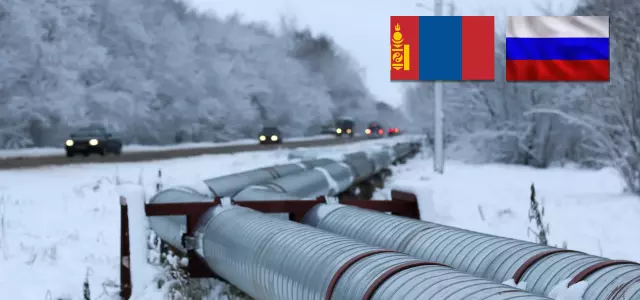
This article originally ran on Forbes.com on August 28, 2024. All rights reserved.
Daniel B. Markind is a Forbes.com energy column contributor. The views expressed in this article are not to be associated with the views of Flaster Greenberg PC.
While Vladimir Putin deals with Ukraine’s advancing the first military invasion of Russian territory since 1941, Mongolia has delivered to him yet another economic blow that he likely also did not expect to have to confront. In its four year economic plan, Mongolia did not include any funding for the Power of Siberia-2 natural gas pipeline that was supposed to link Russia with China. (Source). It has been estimated by Gazprom, the Russian energy giant, that the new pipeline could deliver 1.8 trillion cubic feet of natural gas per year to China, which would certainly help Russia compensate for some of the market share that it lost in Europe due to sanctions following its 2022 invasion of Ukraine.
In response, Russian Foreign Ministry Spokesperson Maria Zakharova suggested that the project is still on track and that different roles are being discussed for Mongolia, including potentially using some of the natural gas revenue to further Mongolian economic development. (Source). One thing that is clear is that the specifics of construction of the pipeline are still in the preliminary stages, with apparently no real agreement yet on how, or whether, to move forward.
This presents Russian President Putin with a major problem. With his forces reeling in many areas due to Ukraine’s unexpected aggression and the Crimea now all but cut off due to Ukrainian bombing, Russia needs weapons and manpower now, instead of long term in the future.
The first pipeline, called Power of Siberia, began delivering natural gas to northern China in 2019. (Source). That pipeline runs down the eastern side of the country, past Beijing and on to Shanghai. The final southern portion is set to begin deliveries in 2025. The second pipeline was scheduled to run through Mongolia (and its capital Ulaanbaatar) and access China northwest of Beijing. However, without Mongolian participation, the pipeline would have to be rerouted east, bypassing some important Chinese cities in the interior. (Source).
Some reports speculate that China is concerned about Gazprom’s attempt to control the part of the pipeline - about one third of the total route - that is scheduled to traverse Mongolia. This would give Moscow too much control, in the eyes of Beijing. (Source). As Beijing believes it will not actually need the gas until around 2030, China is in no hurry to accelerate the project. This again is more bad news for Putin, as figures released earlier in the year show that natural gas sales to China have not made up for the lost markets in Europe.
All of this comes as the Russian Ruble is limping along on world markets at around 92 Rubles/1 US Dollar, having lost approximately 8% in value in just one month and falling back to the levels of late summer 2023. (Source).
Mr. Putin seems to be making many of the same mistakes the United States made during the Vietnam War, such as taking a country to war without being honest about it to the public and delaying to convert to a wartime economy. (Source). His euphemism about the Ukraine attack being not a real war but merely a "special military operation" is an example of this purposeful obfuscation. Unfortunately, as Lyndon Johnson found out too late, the laws of economics don't normally step aside based on rhetoric alone while a country’s leadership continues to lie to its citizens about its success in putting down "special military operations” by the enemy. Thus, Russia appears to be looking at long term growth rates at less than 1%, with its projected loss of energy revenue likely to play a large part in undermining the needed capital for economic (including war) production.
Overall, it is not a rosy scenario in Moscow, and the news from Kursk, and now from Mongolia, shows, once again, that Vladimir Putin badly miscalculated in his attempt to overrun Ukraine militarily.

